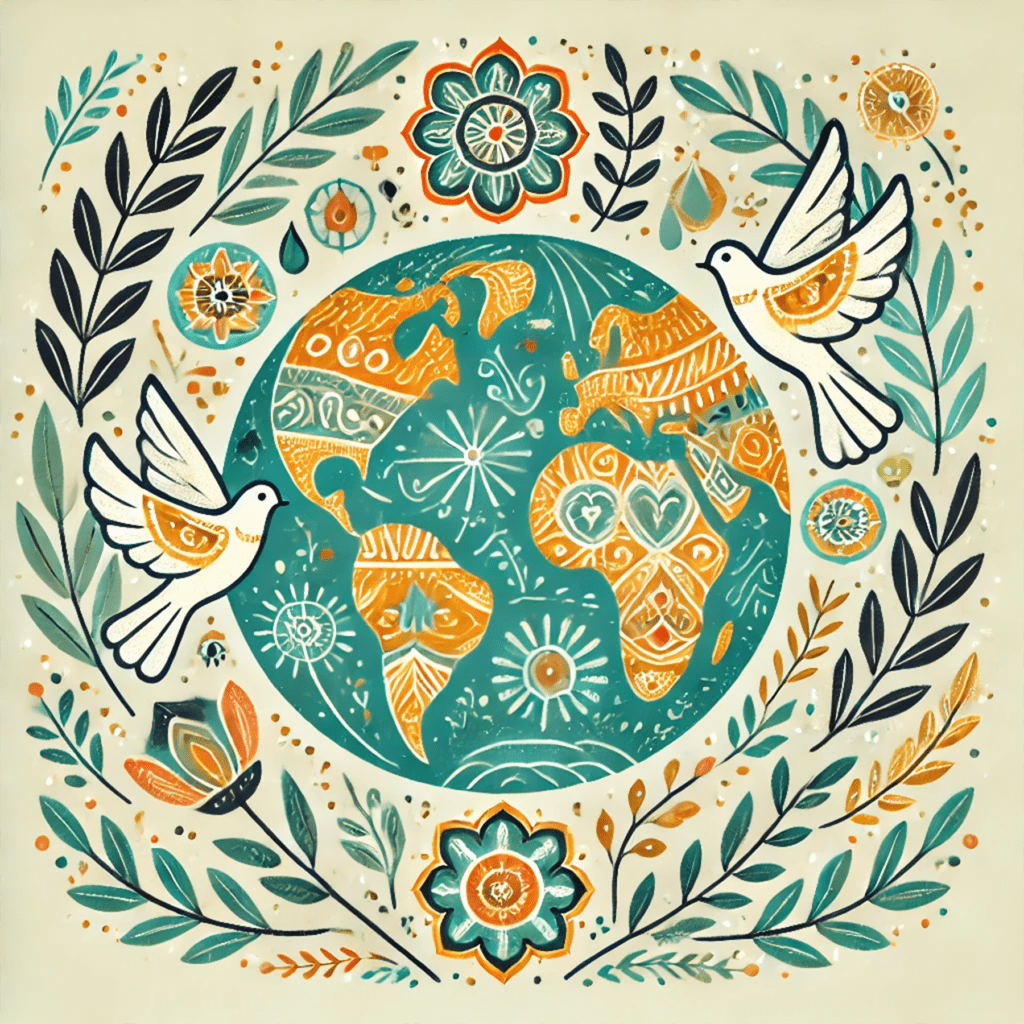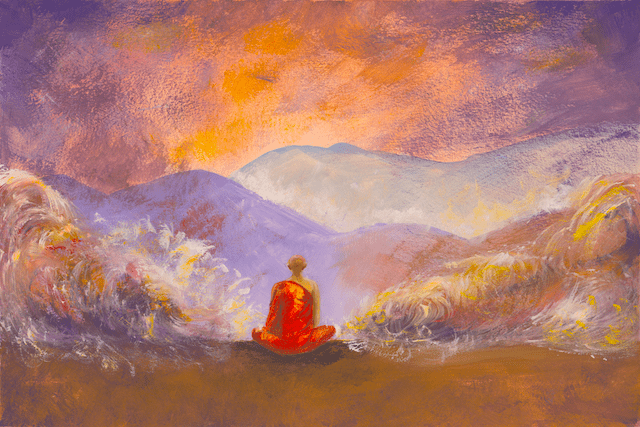
-
Pinterest
In today’s fast-paced world, finding peace can feel like a challenge. Yet, around the globe, cultures have developed unique approaches to living a balanced, peaceful life. These philosophies offer us a window into different ways of thinking about well-being, community, and simplicity. Let’s explore some of these cultural wisdom concepts for a peaceful life and see how they can inspire more peace in our everyday lives.
How Peaceful Life Relates with Cultural Wisdom?
A peaceful life is deeply connected to cultural wisdom because each culture holds its own unique way of understanding and nurturing peace. Cultural wisdom offers us time-tested philosophies and practices that teach us how to live with balance, kindness, and intention. Whether it’s embracing coziness with hygge or finding inner strength through sisu, these concepts provide pathways to a more fulfilling, calm, and joyful existence. By learning from different cultures, we can incorporate these peaceful practices into our daily lives, helping us navigate challenges with grace and appreciate life’s simple moments more fully.
1. Hygge (Denmark)
Hygge is all about comfort and coziness. It’s that warm feeling you get when you’re snuggled up on the couch with a blanket, a good book, and a cup of tea. The Danish embrace hygge as a way to find joy in the simple, everyday moments. It’s about creating a space where you feel safe and content, whether that’s lighting a few candles, spending time with loved ones, or enjoying a slow meal. In our busy lives, hygge reminds us to slow down and savor the quiet moments that bring us peace.
2. Jugaad (India)
Jugaad is the Indian art of finding creative solutions with limited resources. It’s about innovation, resilience, and making the most of what you have. In a world that often pushes us toward consumption and materialism, jugaad teaches us to find joy in simplicity. It reminds us that peace can come from being resourceful, thinking outside the box, and not getting caught up in the idea that we need more to be happy.
3. Friluftsliv (Norway)
Friluftsliv translates to “open-air living” and reflects Norway’s deep connection with nature. Norwegians believe that spending time outdoors, regardless of the weather, is essential for mental and physical well-being. Whether it’s hiking through the woods or simply taking a walk in the park, friluftsliv encourages us to reconnect with nature and find peace in the natural world around us. It’s a reminder that sometimes, the best way to unwind is to step outside and breathe in the fresh air.
4. Dolce Far Niente (Italy)
The Italians have a beautiful phrase, dolce far niente, which means “the sweetness of doing nothing.” This concept is about taking time to relax, enjoy life, and not feel guilty about being unproductive. In a culture that often glorifies busyness, dolce far niente encourages us to slow down and savor the present moment. Whether it’s lingering over a coffee or sitting in the sun with no agenda, it reminds us that peace can be found in simply being, not always doing.

-
Pinterest
5. Sisu (Finland)
Sisu is a Finnish concept that’s all about perseverance, determination, and inner strength. It’s the ability to push through difficult times with courage and resilience. While this might sound intense, sisu actually brings a sense of peace by teaching us that we have the strength to face whatever challenges come our way. It’s about finding calm in knowing that we can endure, that we have what it takes to keep going even when life gets tough.
6. Lagom (Sweden)
Lagom is the Swedish philosophy of “just the right amount.” It’s about balance, moderation, and living in harmony. Rather than seeking excess, lagom encourages us to find contentment in having enough. This idea can bring a deep sense of peace, as it reminds us that happiness isn’t about having more, but about appreciating what we already have. Whether it’s in our work-life balance, our diet, or our relationships, lagom teaches us that peace comes from moderation and living simply.
7. Ubuntu (South Africa)
Ubuntu is a South African philosophy that means “I am because we are.” It’s about community, compassion, and recognizing the interconnectedness of all people. Ubuntu reminds us that peace doesn’t come from isolation, but from supporting and being supported by others. It’s a call to kindness and empathy, teaching us that our own well-being is tied to the well-being of those around us. In practicing ubuntu, we find peace in community, in giving and receiving love and care.
8. Sobremesa (Spain)
Sobremesa is the Spanish tradition of lingering at the table after a meal to enjoy conversation with loved ones. It’s a time to connect, reflect, and share stories. In a world that often rushes through meals, sobremesa invites us to slow down and savor both the food and the company. It teaches us that peace can be found in connection, in the simple act of being present with the people who matter most.

-
Pinterest
9. Gezelligheid (The Netherlands)
Gezelligheid is a Dutch concept that’s all about creating a warm, friendly atmosphere. It’s similar to hygge, but it’s more focused on the feeling of togetherness. Whether you’re hosting a gathering with friends or spending time with family, gezelligheid is about making sure everyone feels comfortable and welcome. It’s the kind of peace that comes from shared moments of happiness, from feeling connected to others and enjoying their company in a cozy, inviting space.
10. Ikigai (Japan)
Ikigai is a Japanese concept that means “reason for being.” It’s the idea that we all have a purpose, something that gives our life meaning and brings us joy. Finding your ikigai is about discovering what you love, what you’re good at, and how you can contribute to the world. It’s a path to peace through purpose. When we align our lives with our ikigai, we feel a deep sense of fulfillment and contentment. It’s a reminder that peace isn’t just about rest—it’s also about living with intention and passion.
11. Feng Shui (China)
Feng Shui is the Chinese practice of arranging your environment to create harmony and balance. It’s based on the idea that the way we organize our space affects the flow of energy, or chi, in our lives. A peaceful home leads to a peaceful mind. By carefully placing furniture, choosing the right colors, and decluttering, Feng Shui teaches us how to create a living space that nurtures well-being and brings peace into our daily lives.
12. Còsagach (Scotland)
Còsagach is a Scottish Gaelic word that describes a feeling of warmth, coziness, and shelter. It’s about finding comfort in your surroundings, especially during the colder months. Whether you’re curling up by the fire or relaxing in a cozy nook, còsagach encourages you to embrace the warmth and create a peaceful atmosphere at home. It’s a reminder that peace can be found in the simple pleasures of life, like a warm blanket and a quiet evening in.

-
Pinterest
More Related Posts:
- The Power of Body Scans and How to Do Them
- 12 Ways to Monetize your Creative Practice
- How to Manage Uncertainty: 7 Tips for Reducing Anxiety and Boosting Happiness
Create Some Moments of Peace!
These cultural concepts offer a wide range of wisdom on how to live a more peaceful, fulfilling life. From the coziness of hygge to the resilience of sisu, each one provides a unique perspective on finding balance, joy, and contentment. By incorporating these ideas into our own lives, we can create more moments of peace, connection, and meaning.
Grab Your Free Printable!
Pop in your name and email and your download will start right away.


